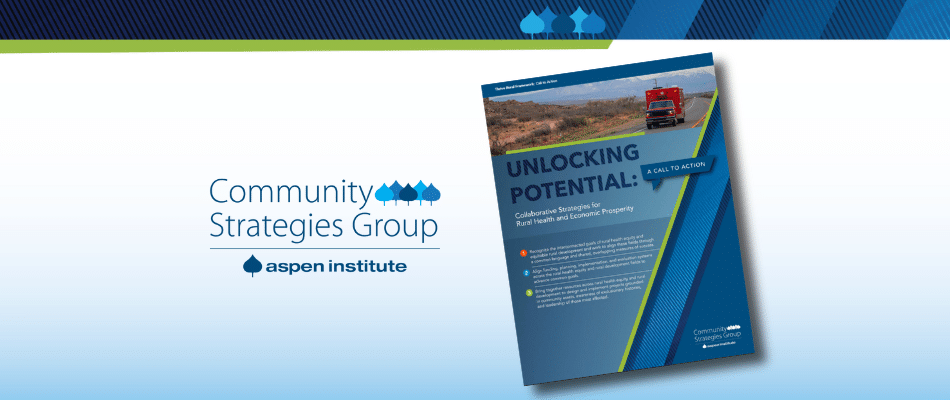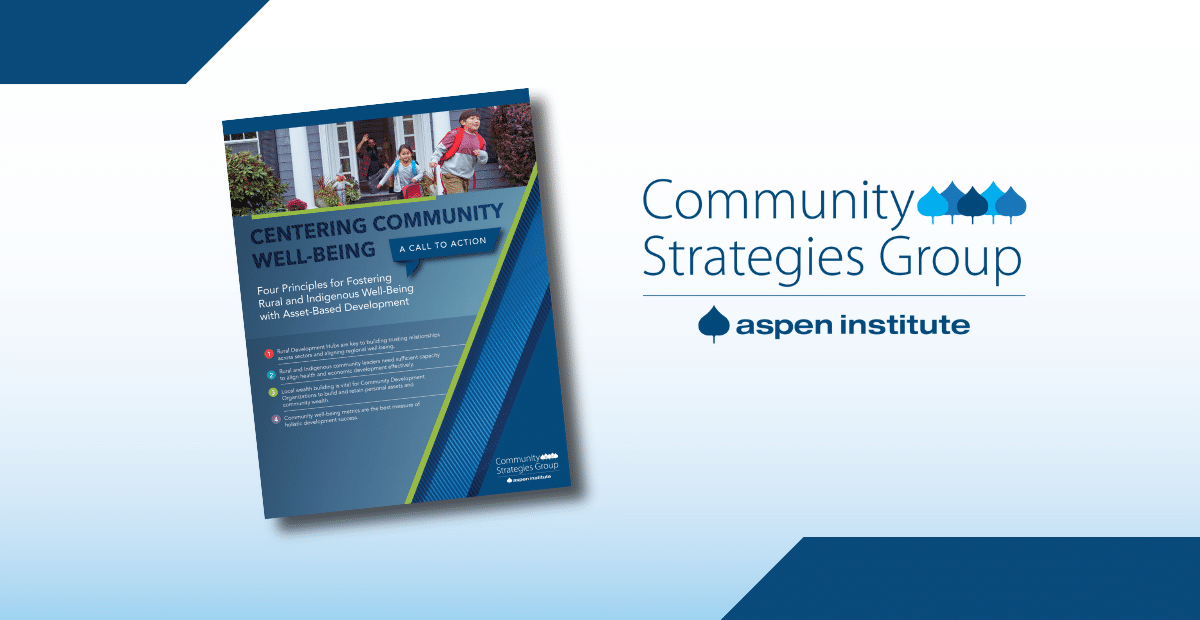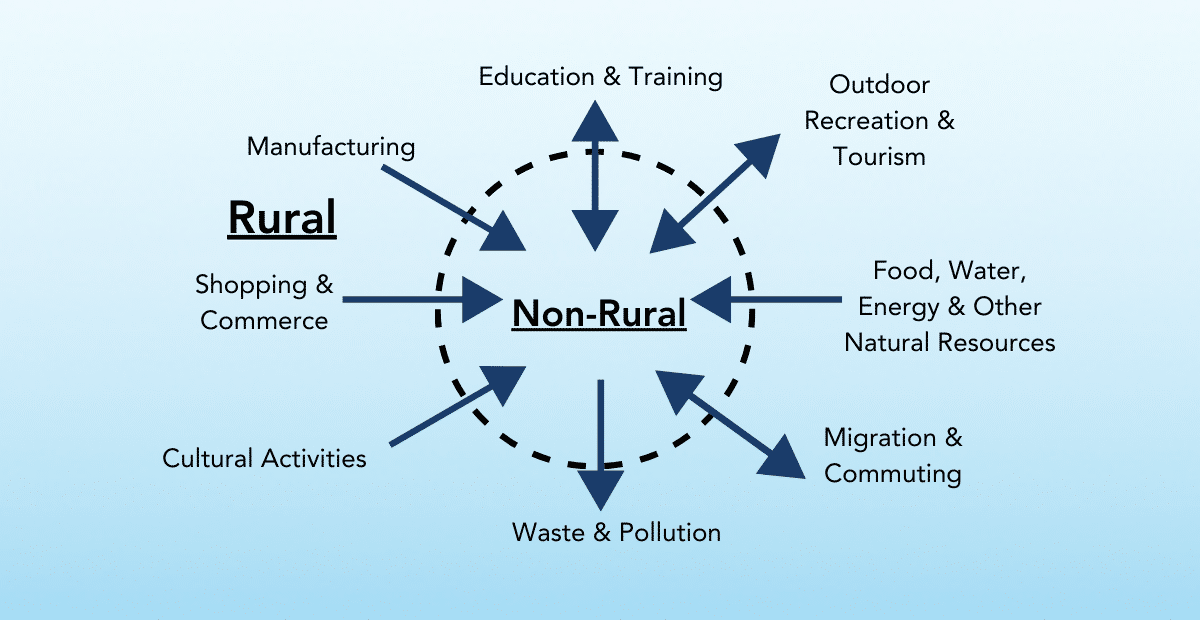View this Publication
Executive Summary document for Unlocking Potential: Call to Action. Get quick takeaways and recommendations for action.
As the Thrive Rural Framework makes clear, rural health and rural community and economic development are inextricably connected—neither field can be successful without the other. Thriving economies and communities require healthy people, and people need strong economic and health systems to thrive. Ideally, both fields are aligned and working together toward a common outcome: healthy places where each and every person belongs, lives with dignity, and thrives.
In practice, however, it is all too common for stakeholders from health and rural development to work in silos, talk past each other, or even work against each other as they seek to implement their respective projects—mainly because their funding sources and operating structures do not encourage or reward collaboration across fields. Economic development projects may not consider the impact of industries on community health, for example. Health-focused projects may encourage target populations to adopt practices that aren’t feasible given economic conditions or simply respond to negative outcomes rather than the systemic root cause.
In many cases, traditional approaches to rural development and health aren’t working or equitable. For example, reliance on attracting or retaining a single major employer or industry leaves rural communities vulnerable to boom-and-bust cycles, and one-size-fits-all health promotion programs may not have the desired impact in rural communities and Native nations with their own robust cultures and values.
The rural health and development fields can work together to exchange learnings and adopt new approaches from each other. For example, economic development approaches often seek to attract “talent” from other places to build local workforces and entrepreneurial ecosystems rather than bringing people living in rural communities into local economies. Public health approaches, which focus on local populations, could help inform and enrich economic development in such cases—especially in seeing and understanding non-traditional assets/capitals that traditional economic development might miss.
The last few years have brought new resources to rural places to combat the pandemic and improve economic outcomes. With these investments and renewed attention on rural development, we can do rural development and rural health differently—moving collectively toward equitable rural development with projects grounded in place and a people-centered vision of community impact.
To achieve this, we must align mindsets across fields to truly work together toward our common goal. This Call to Action results from thoughtful reflection and engaging conversation among health and rural development practitioners based in rural communities and Native nations across the United States. As these practitioners came together to discuss perspectives and concerns, they laughed together, cried together, and advanced the vital work of aligning mindsets for the sake of rural communities.








